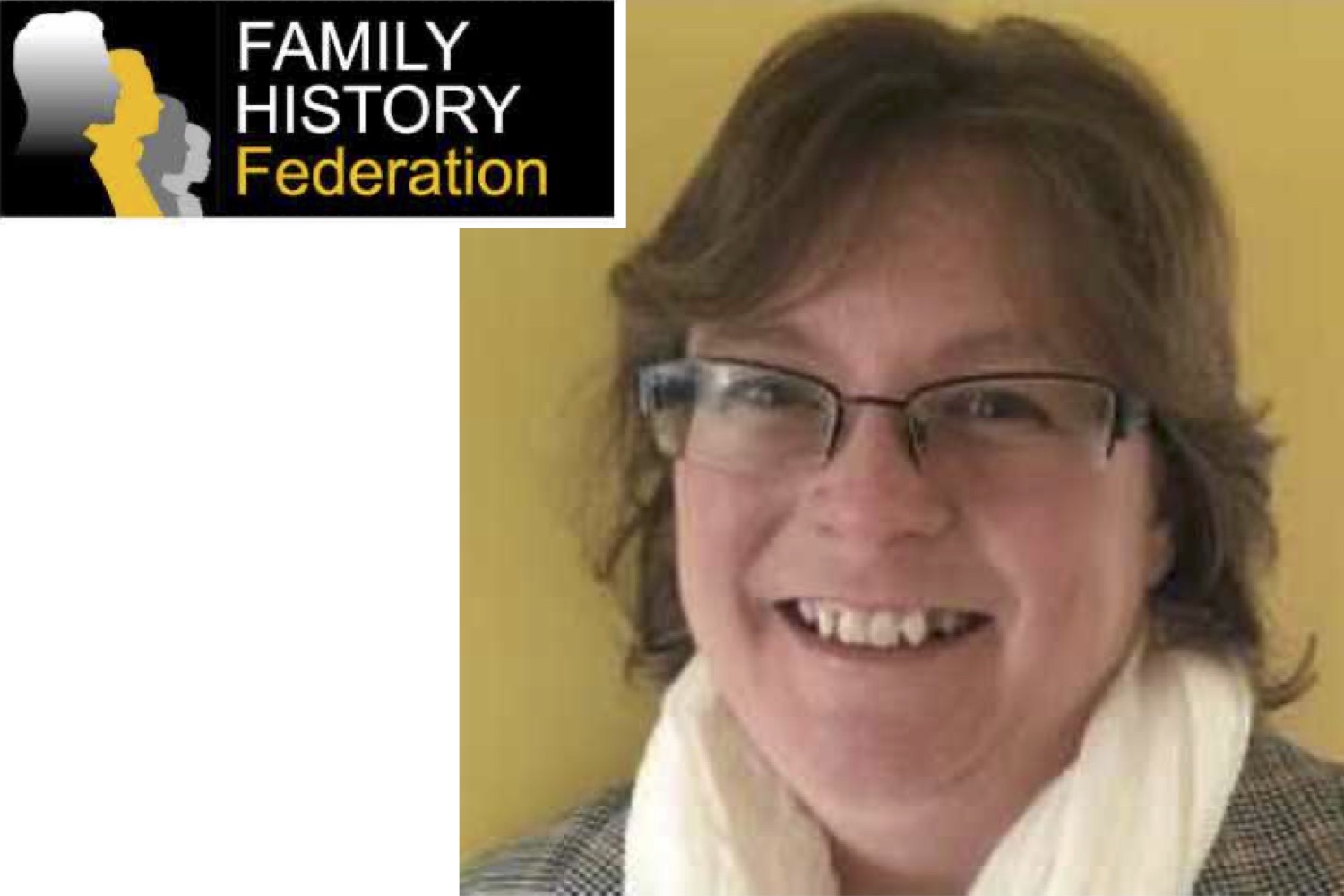- Screen Colours:
- Normal
- Black & Yellow

Migration through the UK
This talk by Debbie Bradley, of the Family History Federation, took us on a tour of numerous parts of the UK, with even mention of foreign climes. Our ancestors moved, and sometimes great distances. It was a talk about things you need to think about to find your ancestors if they moved around the country. The question posed being, why did people leave their home location to go elsewhere?
To find answers Debbie showed us how she followed the travels of George Henry Clarke who worked on reservoirs and canals. Debbie showed us a map of the UK on which she had drawn lines showing locations and the route to get there. However over the years he changed his name in a number of ways, so he was difficult to follow through the usual genealogy records, in fact over time he used five different names. This is why Debbie advised looking at records very carefully, not just the name you are looking for — such as witnesses to marriages, children’s names and parents’ names, as well as name patterns and similarities.
 |
 |
Don’t depend wholly on transcribed records with names, relationships, even place names. For example, she found Romsey (in Hampshire) transcribed as Ramsey (such as in Cambridgeshire). So check original records when you can.
Aligning movement with historical events — there are many events which were a reason for people to move away from their home location, such as agricultural depression, the Industrial Revolution, involving railway work locations, Military Service at home and abroad, and travel to take up an apprenticeship. Examples included an apprentice who travelled from Walsingham, Norfolk to Strood in Kent. Newspapers carried adverts for apprentices, as well as servants, gardeners etc. Apprenticeship records are a useful source, and may show that someone ran away.
 |
 |
More population movement occurred when people were recruited for large metropolitan towns, and banks expanded and needed more staff. Fishing, coal and iron industries brought their products down the East Coast, some from Scotland, to Great Yarmouth, London and the Kent coast, often with family members on board. Builders, Excise workers, pub landlords, fishing-net makers were there to support the incomers.
Poor Law Records can reveal when and where people were moved to, such as coal mines. Weavers were out of work as mechanised factories opened in towns. Newspapers had advertisements for domestic servants in country houses and big cities. Someone might leave home after a disagreement, such as a parent didn’t approve of their marriage plans, or they'd been sent to prison.
 |
 |
The Industrial Revolution was a major factor for population movement. Poor Law Acts provided transport to docks and a place on a ship, and many set out for countries like Australia and America. Poor Law Commission records can be found at The National Archives, Kew.
Debbie recommended the usual websites, but also sources like Police records, Poor Law Records, newspaper adverts – in fact any records for any snippet of information that you can find.
text by Janet Huckle
photos by Maggie Strutt
❋⚭+ ❋⚭+ ❋⚭+ ❋⚭+ ❋⚭+ ❋⚭+ ❋⚭+
Migration through the UK
by Debbie Bradley (online from Norfolk)
over Zoom and at the Fromus Centre, Saxmundham
20th February at 14:30
—
Our ancestors moved, sometimes great distances. This is a practical talk about things you need to think about to find your ancestors if they moved around the country. Apart from the move generally of people during the Industrial Revolution from the villages to towns in search of work, or better paid work, there was also parish-assisted migration within the UK.
Debbie Bradley explores her ancestors’ movements around the UK, and her difficulties tracking them down. This is a practical talk about things you need to think about to find your ancestors if they moved around the country. Hints and tips are included to inspire and assist others undertaking similar research. Debbie is a professional genealogist and Associate Member of the Association of Genealogists and Researchers in Archives (AGRA). She is also Administrator of the Family History Federation. She will be speaking to us online from Norfolk.
Attendees over Zoom should register at https://avsfhg.org.uk/book before 5:00pm on Friday, 17th February, but after the previous month's talk has taken place. In-person attendees can just turn up — at £1.00 for Members, £3.00 for visitors, including tea/biscuits.